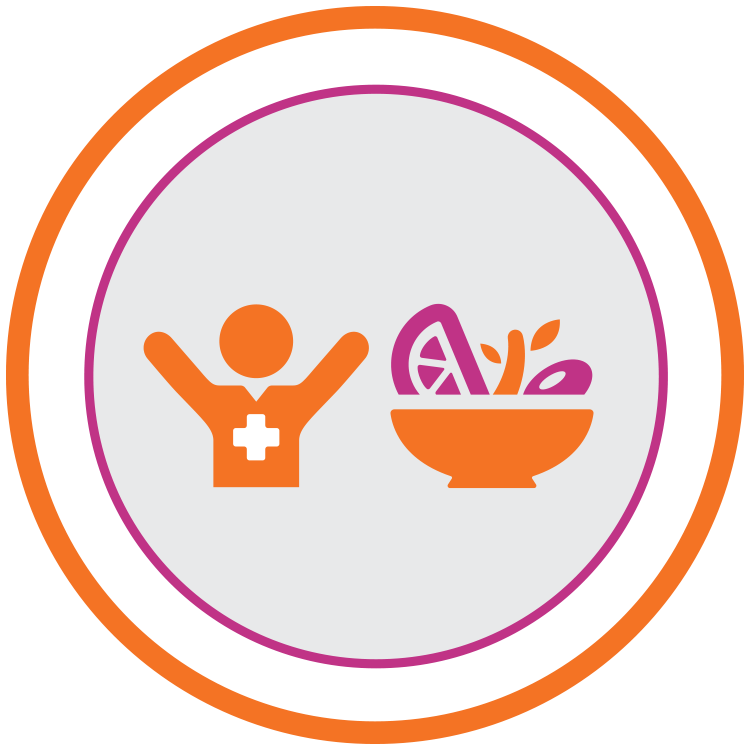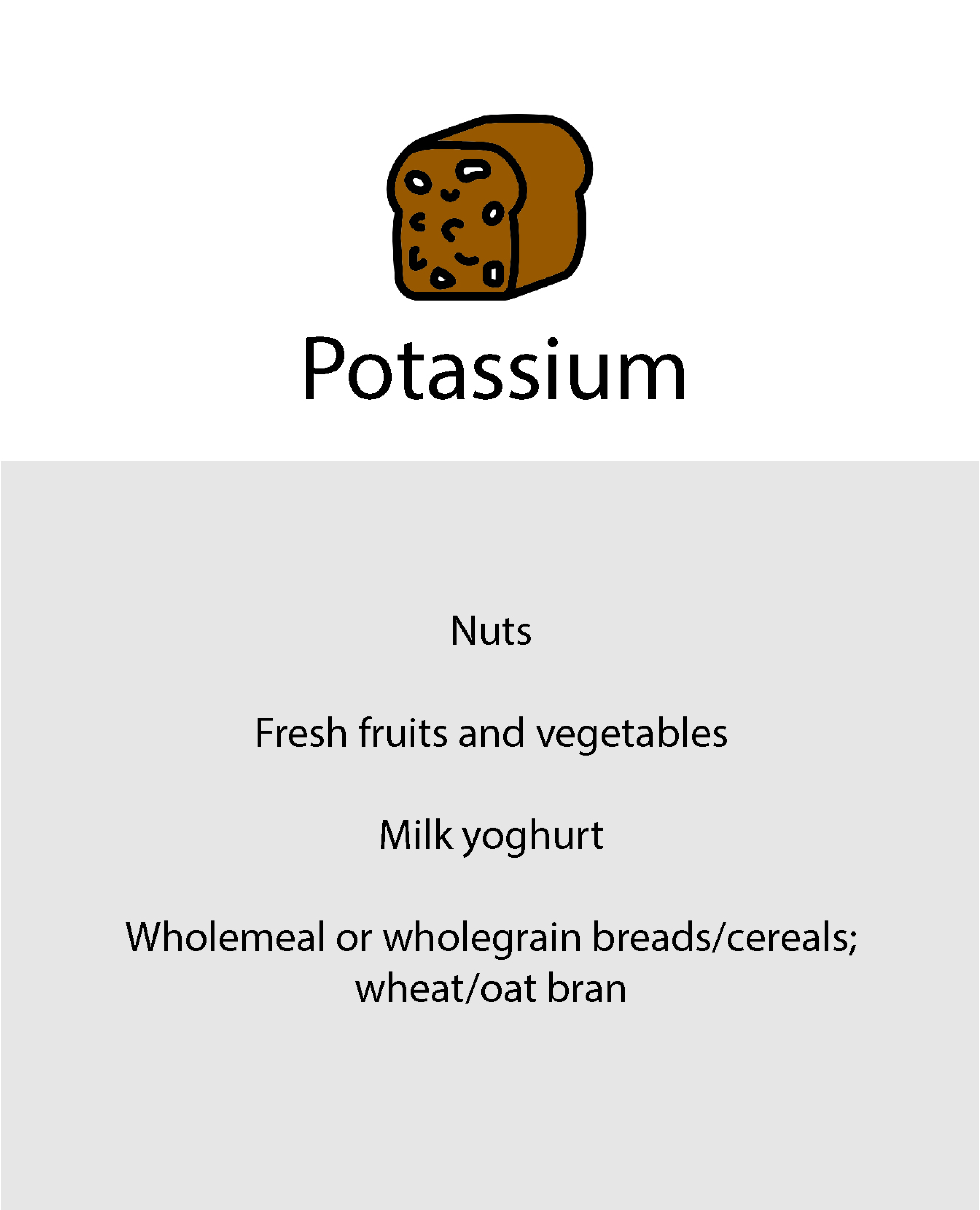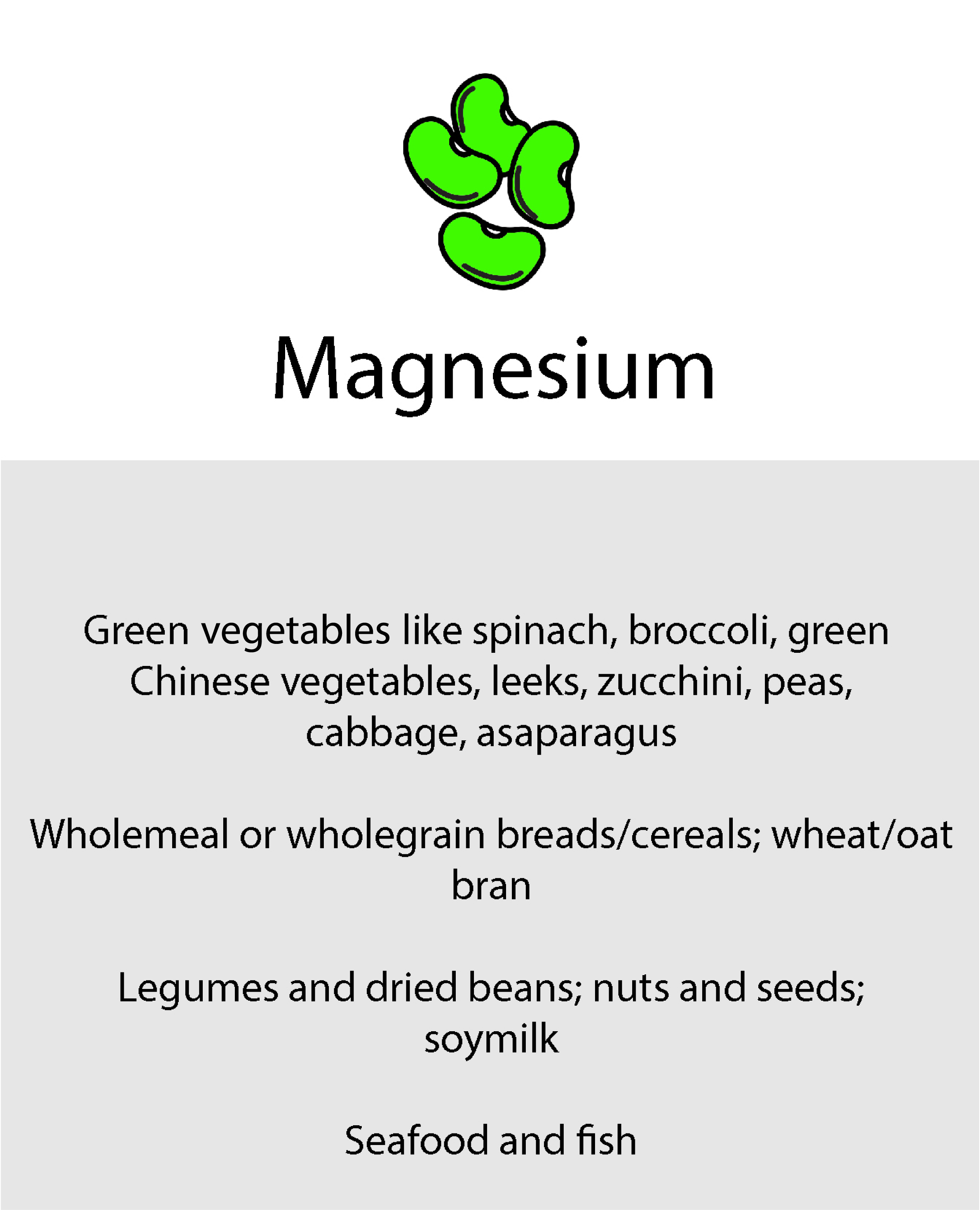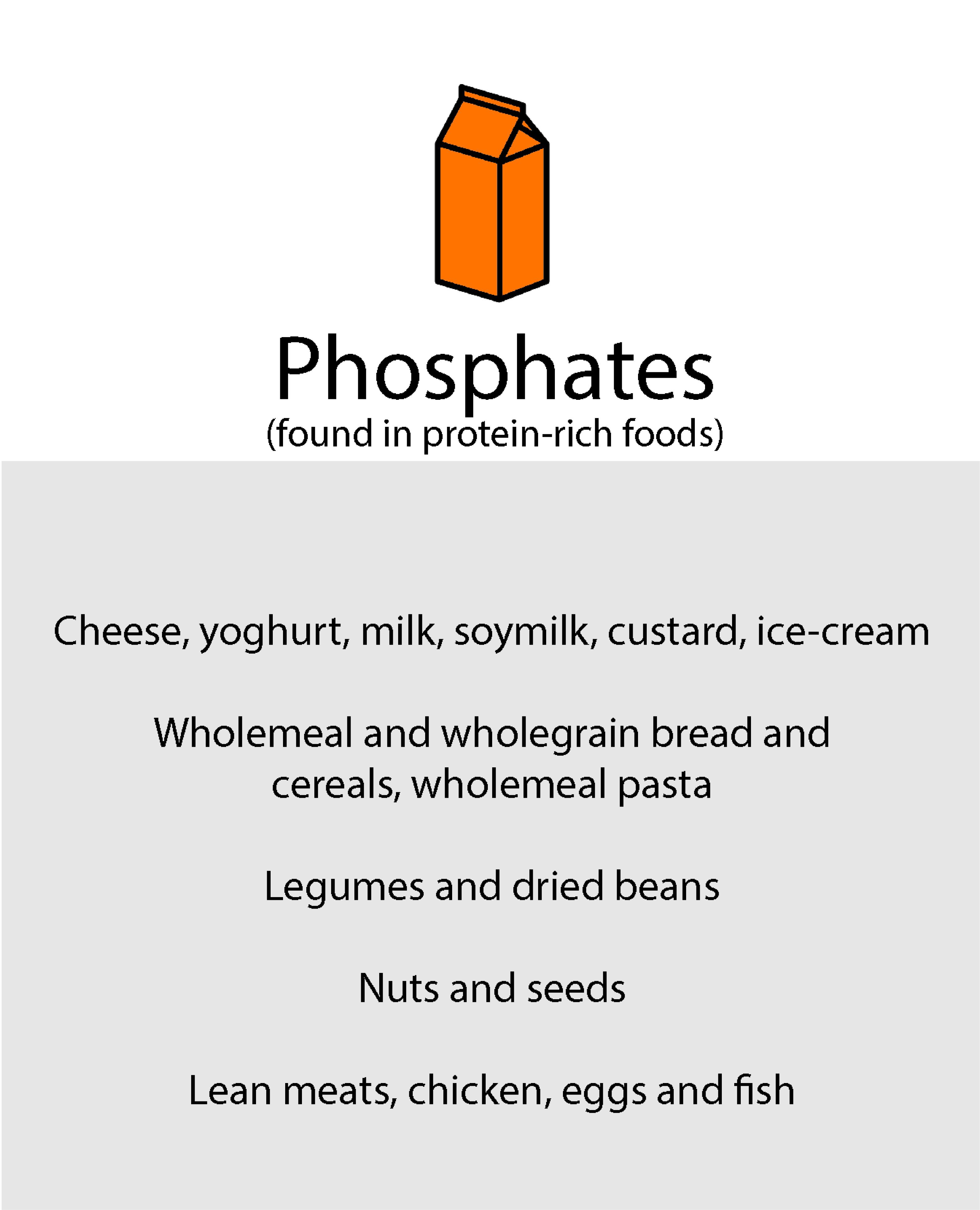Phosphate, Magnesium, Potassium
Our body depends on minerals like phosphates, potassium and magnesium to maintain some of its functions. Organ failure, or the treatment of the disease leading to organ failure, can lead to an imbalance in some of these minerals.
Examples of how mineral imbalances can affect us
- Found in many foods we eat, potassium plays a key role in muscle contraction and heart function. Kidney failure causes a buildup of potassium in the body causing fatigue and nausea. Very high levels of potassium can be dangerous for the heart
- Some medicines used to manage heart failure can cause a loss of potassium. Low potassium levels can cause muscle weaknesses and heartbeat irregularities
- Magnesium is essential for several body functions including muscle health. People with cirrhosis of the liver often have depleted levels of magnesium. Anti-rejection medications taken after your transplant can also deplete magnesium levels causing muscle cramps and fatigue
- The balance of calcium and phosphorous, vital for bone health, is maintained by the kidneys. An imbalance in these minerals caused by kidney disease can lead to bone diseases. High doses of immunosuppressants administered during initial weeks after transplantation can also cause weak bones
After transplantation, the levels of these minerals will be monitored every day. Your doctor will advise you (based on the results of blood tests) to increase or restrict any of these minerals.
The foods that we eat every day are the main sources of phosphates, magnesium, calcium and potassium. Talk to your dietitian regarding foods that contain these minerals. You can easily meet your daily requirements by including healthy options in your daily meals.
Check out this table for some healthy foods that are high in these minerals.









